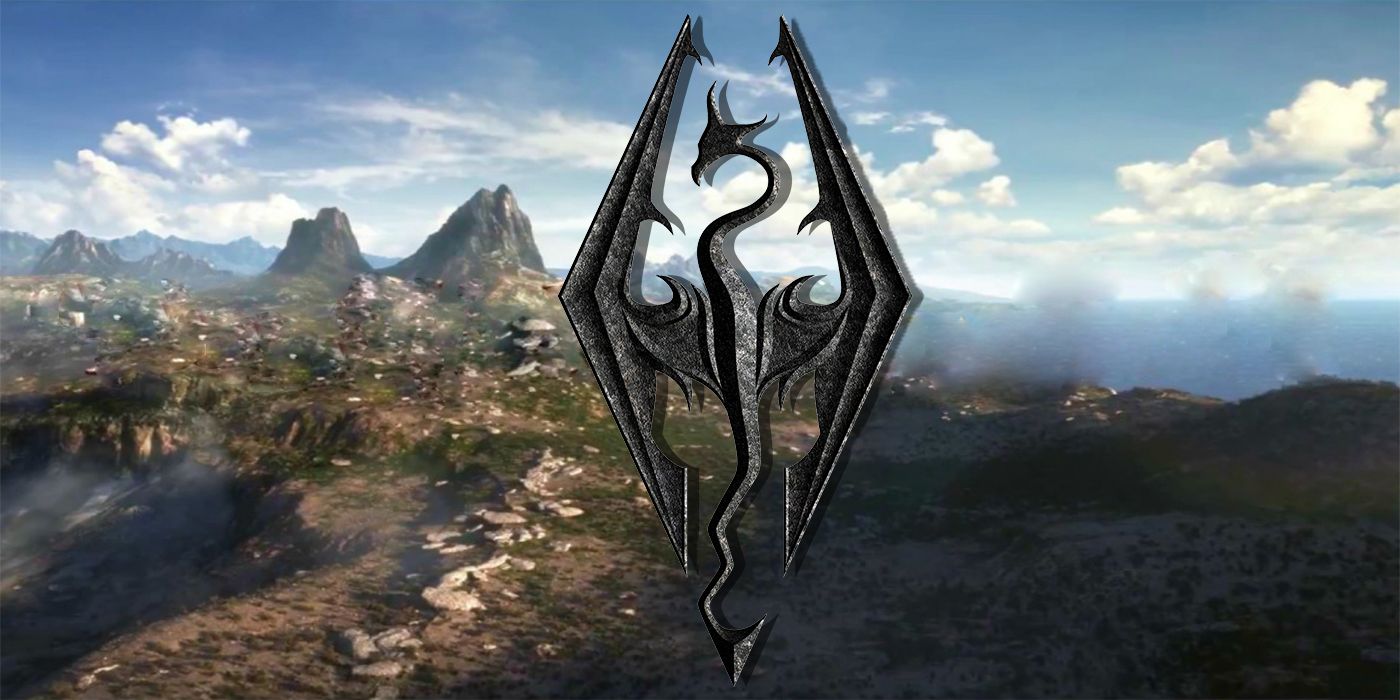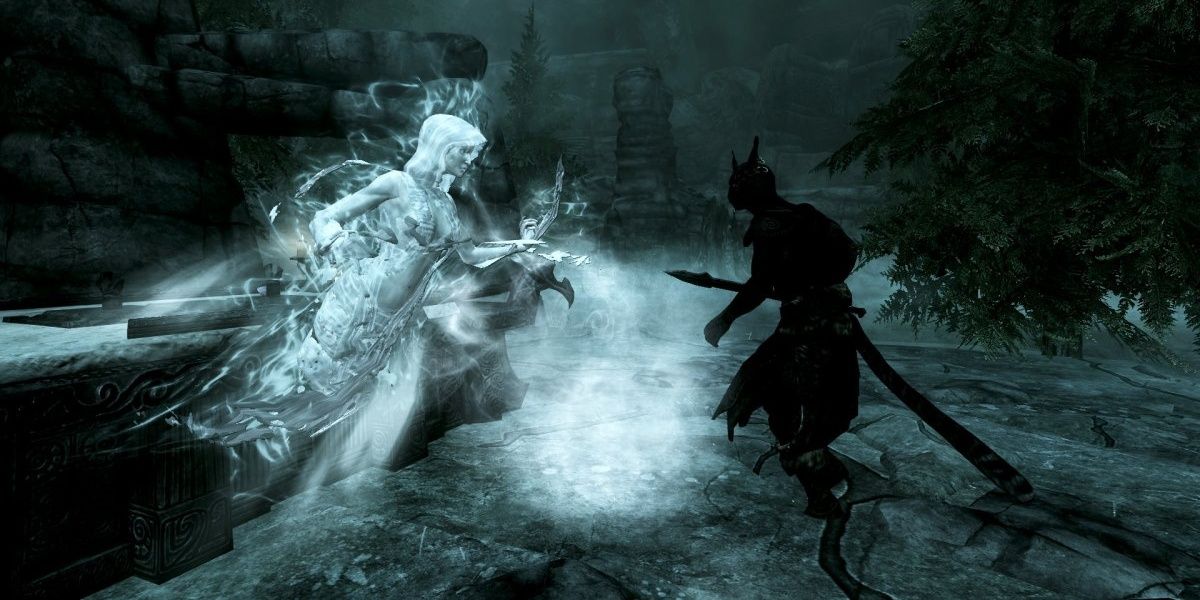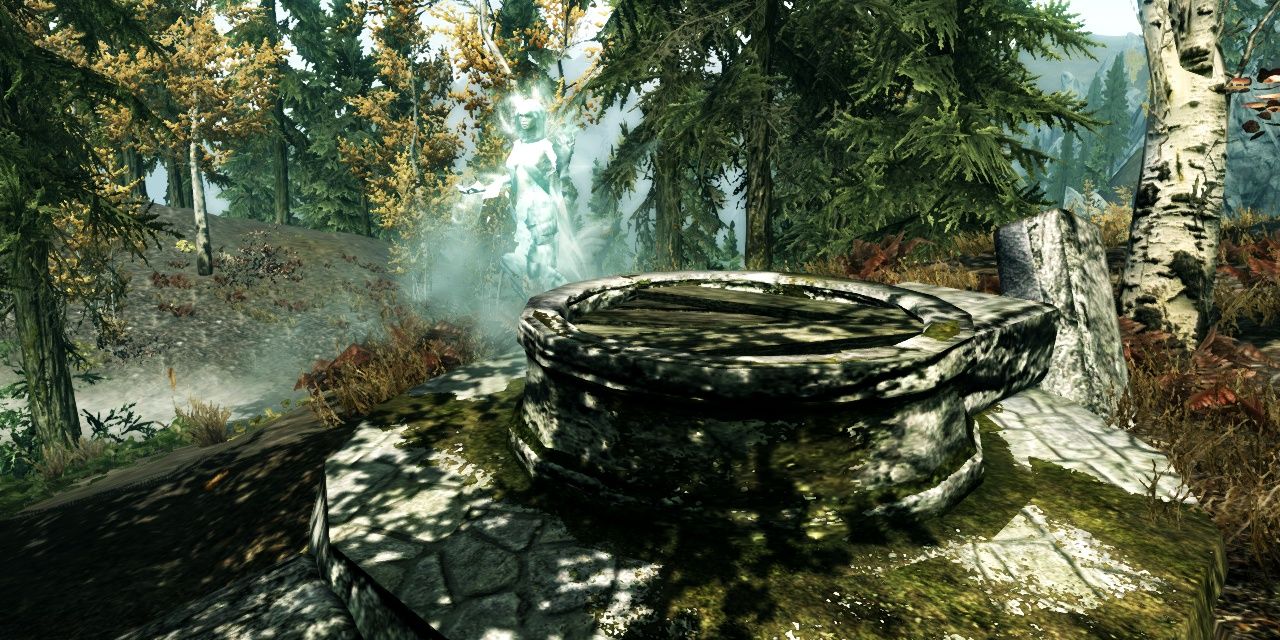As news breaks of the recent ZeniMax acquisition and what that means for Bethesda and its future under somewhat new management, this may be the time for the company to take a new look at how it makes games. With Bethesda now under Microsoft management, this could be an opportunity to start a new era in game development, specifically when it comes to the developer's reliance on the Creation Engine.
The Bethesda developed Creation Engine has been the primary source of some of the developer's biggest titles in the past, but it may also be the cause of some of the stagnation that has occurred since Fallout 4. Specifically, it's the way that the engine allows for the speedy creation of open worlds that has kept what could be the biggest developer in the world stuck firmly in the previous generation for nearly a decade.
The Elder Scroll 6's Creation Engine
To address the elephant in the room when it comes to conversations on the Creation Engine, it's important to look ahead before looking at the legacy and reputation of the program. Specifically, from Bethesda's own accounts, the engine in The Elder Scrolls 6, has supposedly been so changed by each major update that it has undergone overtime, it is otherwise unidentifiable from previous versions. However, this creates a Ship of Theseus type of paradox, where players interested in the upcoming game have to wonder if replacing enough parts of the engine means that it is the same engine, or has it become a new piece of software all-together.
While it has yet to be seen if the changes really will turn into a completely new experience from Skyrim to TES6, the continued use of the older engine is still worrisome. Even if the basic parts have changed, many of them were built to fit in line with the original, and everything put together is likely to still follow the basic DNA that has made Bethesda's previous releases. So, even if there are some groundbreaking mechanics and features added into the overhauled engine, things are still going to turn out as more of the same without a foundational redesign to eliminate the base problems Creation still has.
Creation Engine and Glitches
Players can argue about the design of Bethesda's narrative or the quality of combat in Skyrim or Fallout, but one place where there is no room for opposing positions is the prevalent existence of glitches in these titles. These hiccups can range from charming to game-breaking as players run into conversational animation errors or entire levels refuse to load and sends the player either to a skybox void or back to the title screen. Gameplay bugs have become such a staple to these titles, that it has become almost an added feature to the game to find every place that the engine mistakenly loads an enemy or NPC to comical results.
What isn't funny about running into these issues, however, is when issues like Fallout 4's Monsignior Plaza bug completely bricks a game by freezing the screen and corrupting a players save data. Similarly, the massive amount of visual and gameplay glitches in Bethesda's online installment has led to the requirement of numerous Fallout 76 updates just to make up for the poorly received release. A number of these are symptoms of many different issues with development, from rushed deadlines to departing designers, but when so many of them span so clearly across the Creation Engine's titles, it's hard not to point at the crumbling foundation as the main problem.
Creation is Almost a Decade in the past
The first game made with what is known now as the Creation Engine was Skyrim, which may be still releasing as recently as 2018 for Alexa, originally launched on PS3 and Xbox 360 in 2011. It may be hard to remember how long it has been since that initial release, thanks to the game's "instant classic" status, but that is a full console generation ago and coming up on two as PS5 and Xbox Series X prepare to launch in November. With The Elder Scrolls 6 likely coming to Next-Gen consoles as well as PC, a new title needs a new foundation with modern technology in mind from concept to creation.
It's not that the games themselves haven't aged well, especially considering the cult status that keeps the Skyrim community modding the game and playing well into 2020. The issue at hand, is that if Skyrim as it was nine years ago released today, it would be critically panned for being out of date both graphically and mechanically. Exploring the massive worlds of The Elder Scrolls has never lost its allure, becoming more of a quest of novelty over discovery these days, but without the earned notoriety the game earned in 2011, it wouldn't hold up to modern games.
Microsoft funded Creation Engine 2
There are dozens of game engines available now, and everything from Unity to GameMaker Studio 2 can help indie developers get their feet off the ground in this industry. However, Bethesda is a major developer and publisher with tons of games under its belt and even more IPs under the publishing umbrella, and with the backing of Microsoft acquiring parent company ZeniMax, there is a new opportunity to push forward for a new engine. Instead of putting the Creation Engine on the shelf and picking up someone else's program, like Epic Games' Unreal Engine 5, Bethesda needs to change focus into the development of high quality game engines.
The problems in the Creation Engine run deep, and an overhaul similar to Skyrim's just isn't enough anymore, but this could be a separate opportunity for both Bethesda and Microsoft to enter a whole new market. Huge developers pick up third party engines all the time, with powerhouse titles like Final Fantasy 15 being developed on the Unreal Engine 4, although the property is available for smaller dev teams at the same time. If Bethesda could remake what makes the developer's games so memorable and improve on them in a Creation Engine 2, selling the rights to the open-world building program could be a whole new market of engine licensing that the Creation Kits have already tiptoed into.
The Elder Scrolls 6 is currently in development.





